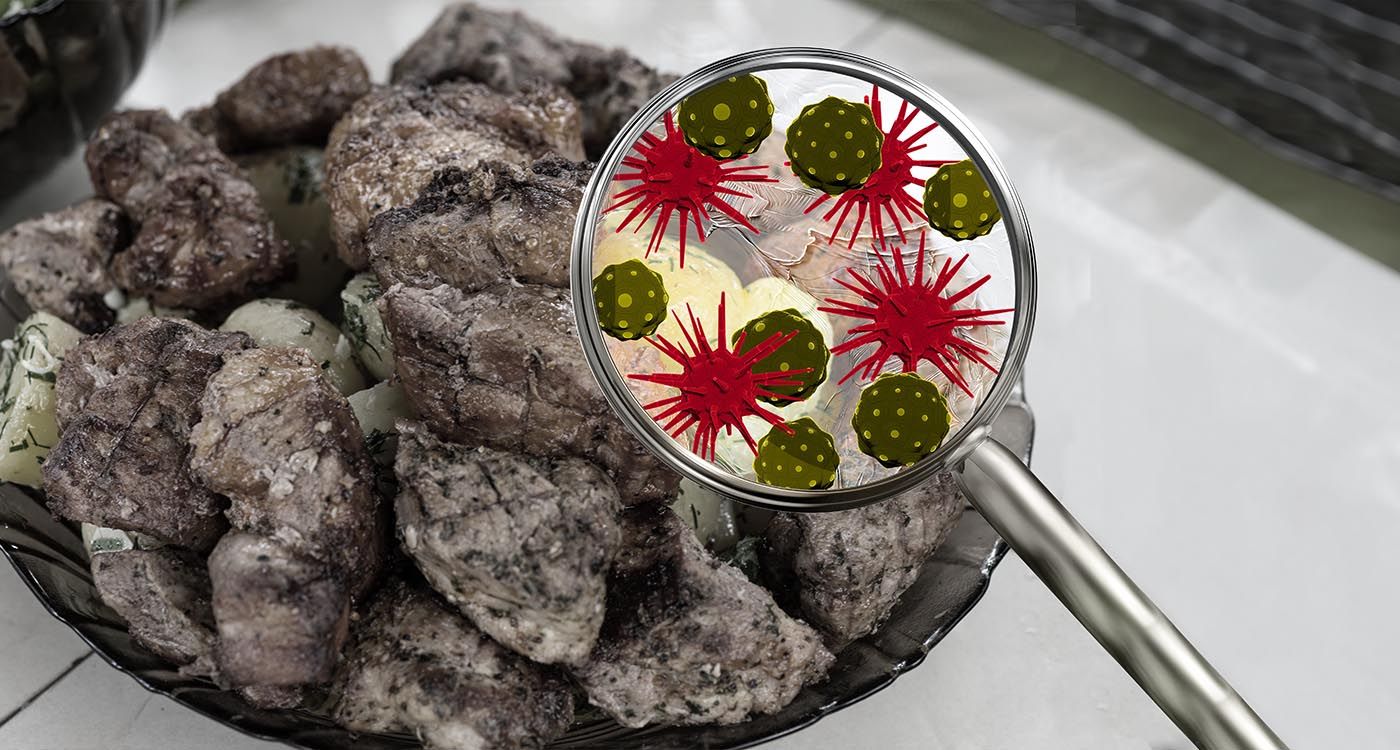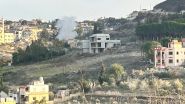
Between viruses, bacteria and unbreathable air, Lebanon is suffocating. Gastroenteritis, COVID, rotavirus, flu and respiratory infections are multiplying in a country where public hygiene has disappeared from the radar.
A Feverish Country, Citizens Out of Breath
A morning like any other in Beirut. Unusual lines at the pharmacy, overwhelmed medical offices, worried parents in pediatric waiting rooms. Fever, cough, diarrhea, vomiting… For several weeks, Lebanese citizens have been falling ill. Gastroenteritis, rotavirus, summer flu, COVID and lung infections are crossing paths, overlapping and taking turns in a country that has become an open-air incubator.
At the origin of this “Lebanese syndrome:” failing public hygiene, omnipresent pollution, collapsing health management and a population out of breath.
A Wave of Illnesses in the Open Air
Doctors are clear: Lebanon is facing an abnormal resurgence of infections. Emergency rooms are always full, pharmacies are overwhelmed with demand for paracetamol, probiotics, syrups and nasal sprays.
At Geitaoui Hospital, gastroenterologist Antoine Geagea describes an unprecedented situation, “We are receiving a huge number of viral and bacterial gastroenteritis cases. The episodes are more severe than usual, with strong dehydration.”
Another noteworthy fact: the frequency of grouped cases within families. “It’s a real pathogenic cocktail, with rotavirus, Campylobacter, E. coli...” he specifies. Several factors explain this outbreak. “The increased flow of tourists plays a role, but the hygiene conditions in many restaurants are also to blame,” he stresses. “The handling of chicken, in particular, is often problematic.” And the specialist adds a basic but crucial piece of advice, “You must absolutely avoid consuming raw vegetables, raw meat or chicken in questionable restaurants, especially when they don’t follow sanitary recommendations or labeling standards.”
As for the COVID virus, it never really disappeared. It reemerges in waves, in a climate of general indifference. “COVID is circulating quietly but continuously, often masked in the form of a cold, flu-like syndrome or gastroenteritis,” confirms Professor Jacques Choucair, head of the infectious diseases department at Hôtel-Dieu de France. “We have also noted an increase in non-COVID flu-like syndromes, probably linked to other seasonal viruses.”
When Filth Becomes a Public Health Factor
In the streets of Beirut, the images speak for themselves. Open-air trash bins, rivers turned into sewers, sewers turned into rivers and contaminated groundwater. The situation is so dire that even the most fatalistic can’t take it anymore.
“In the summer, the heat speeds up waste decomposition, favors microbial proliferation and worsens air pollution,” explains Jacques Choucair. Moreover, irresponsibility is omnipresent, in addition to the stigma around basic precautions, leading to an increased risk of contagion. “Collective hygiene is catastrophic. When the environment is toxic, the human body becomes vulnerable.”
Add to that the roaring of private generators, suffocating traffic jams, industries without filters… You only need to come down from the mountain early in the morning to see a thick grayish cloud hanging over Beirut. The air is unbreathable.
Children on the Front Line
Pediatricians are also sounding the alarm. Rotavirus infection, responsible for acute gastroenteritis in infants, is actively circulating. “We see dehydrated babies, exhausted, hospitalized for episodes that could have been avoided with simple preventive measures,” regrets a pediatrician from the Metn region.
Same observation at Saint George Hospital in Achrafieh, where Dr. Gretta Sahyoun Harrouk, consulting pediatrician, confirms a noticeable increase in cases, “Yes, this year, rotavirus has affected a large number of children, but also adults. However, it must be mentioned that this viral spread happens periodically,”
she adds with nuance. She is especially worried about the decline in pediatric vaccination, worsened by the crisis, “It is very concerning, especially since vaccine prices have increased and they are sometimes unavailable. Additionally, the health crisis has created a kind of vaccine-phobia, fueling widespread mistrust toward all vaccines.”
Given this intense viral spread, the role of parents is crucial. “They must ensure good hygiene, but also make sure their children receive the recommended vaccines as soon as they are eligible,” insists Dr. Sahyoun Harrouk.
And that’s not all: other summer diseases are worrying doctors. “Gastroenteritis in general — not only the one caused by rotavirus — is very widespread in summer. So it’s important to properly wash fruits and vegetables, maintain the cold chain for dairy and meats, and ensure thorough cooking, especially for chicken and ground meat.”
Children are also the first victims of air pollution. Pulmonologist Carole Youakim notes a worrying increase in asthma and chronic bronchitis cases among young children, “We often talk about viruses, but we forget the aggravating factors: the air we breathe is saturated with fine particles. These particles inflame the airways, especially in children, the elderly and vulnerable patients.”
An Overwhelmed Health System
While viruses are settling in, the Lebanese healthcare system continues to collapse. Health inspection services are nearly inactive, food inspections are rare or symbolic and wastewater is no longer treated. “We’re doing makeshift medicine,” sums up Antoine Geagea. “We treat, we patch things up, but we don’t anticipate anything anymore. People self-medicate, avoid tests, treat themselves at home... until it becomes an emergency.”
In a country where the Ministry of Health is more preoccupied with political figures than with silent epidemics, doctors are trying as best as they can to plug the gaps.
When the State Is Sick, Citizens Suffer
What Lebanon is currently going through is not a temporary crisis, but the direct result of years of neglect. When tap water is unsafe, when garbage bins overflow, when the air is saturated with toxins, public health becomes an illusion. “The link between environment and infectious diseases is obvious. There is no health without collective hygiene,” asserts Jacques Choucair.
Meanwhile, Lebanese citizens continue to fall ill, in general indifference. Everyone is coughing, vomiting, spitting or sneezing. And perhaps the worst part is that people are starting to get used to it.




Comments